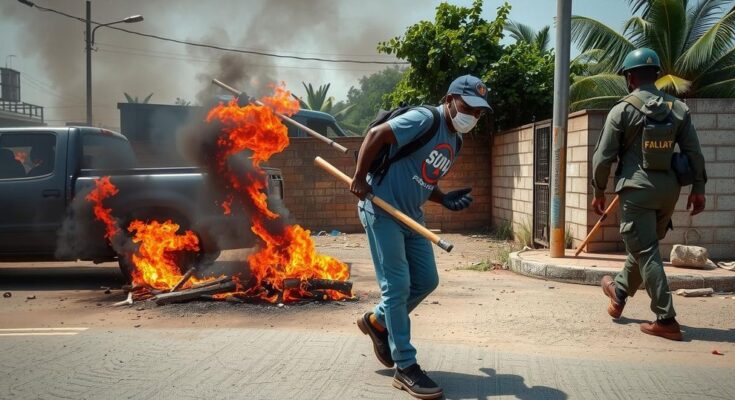Mozambique is witnessing severe unrest following a disputed presidential election result, leading to over 250 deaths since October. The ruling party faces accusations of election rigging, resulting in violence, protests, and calls for civil disobedience from opposition leaders. This instability poses significant implications for the region and mirrors a deeper crisis in governance and civil rights within the country.
Mozambique is currently experiencing its most severe election-related violence since the conclusion of its civil war over three decades ago. Following the endorsement of a contentious presidential election result on December 23, there have been at least 125 fatalities resulting from protests across the nation, as reported by a civil society organization. This brings the total number of deaths to 252 since the elections held in October. Citizens have accused the ruling Frelimo party of electoral fraud, leading to widespread clashes with law enforcement and military personnel.
The opposition candidate, who disputes the election outcome, has proclaimed himself the rightful winner and has urged citizens to paralyze the country as a form of protest. The civil unrest has escalated, characterized by burning tires, looting of businesses, and the establishment of informal roadblocks by angry groups. Many prisoners have also escaped amid the chaos. Cídia Chissungo, a human-rights activist, remarked, “It’s not even protest anymore. This is like a social revolt.”
The situation in Mozambique is particularly concerning due to its strategic significance as a port nation that serves as a vital link between southern Africa and global maritime routes. This unrest not only impacts Mozambique itself but also poses potential regional implications, as instability in this country could have ripple effects throughout southern Africa. The country has been grappling with issues of governance and civil liberties, which have been exacerbated by the electoral controversy and subsequent violence, drawing attention from international observers and stakeholders. The political landscape remains tense, with citizens expressing their frustrations over the perceived inability of the government to address their grievances.
In conclusion, Mozambique is engulfed in violence stemming from contested electoral results, leading to significant loss of life and heightened social unrest. The ruling Frelimo party faces accusations of electoral malpractice, prompting a call to action from opposition figures. The unrest is an urgent matter not only for Mozambique but also for the stability of the southern African region. The international community must closely monitor this situation to foster peace and stability in the area.
Original Source: www.nytimes.com




